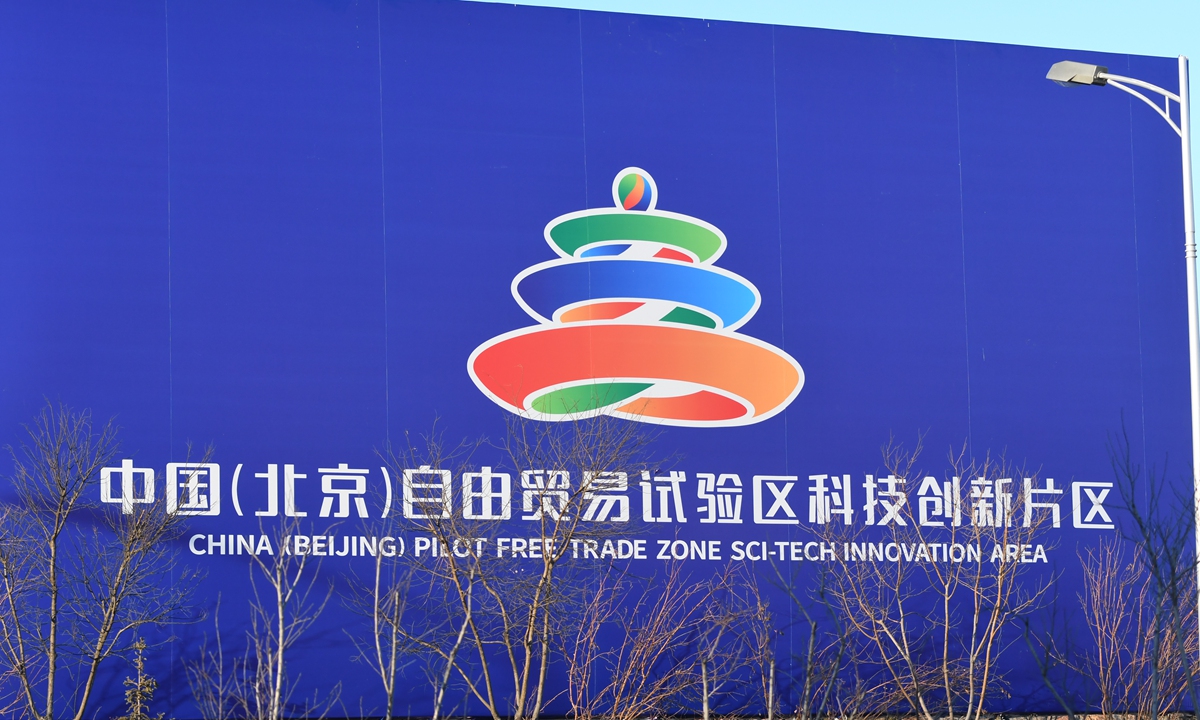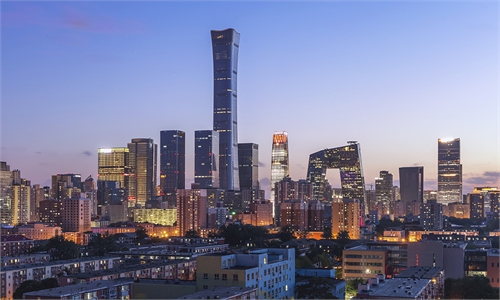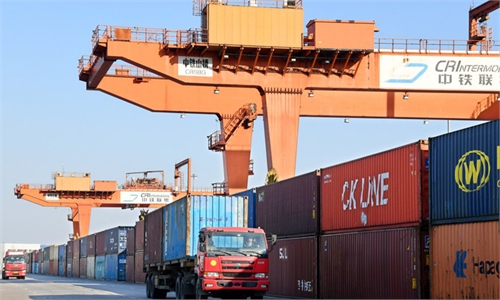Beijing specifies rules for construction of pilot FTZ, focus on high-tech, innovation

Beijing Pilot Free Trade Zone Sci-Tech Innovation Area Photo: VCG
Beijing on Thursday passed a detailed regulation that lays out the city's policy priority and development plan for the China (Beijing) Pilot Free Trade Zone (FTZ), covering 10 areas, ranging from the FTZ's development target, management system and finance service to talent service guarantees.
The regulation will be effective from May 1.
According to the regulation, Beijing will attract leading technology companies and internationally renowned R&D institutions to the FTZ, expand academic international exchanges, promote opening and sharing major scientific and technological facilities, support the establishment of platforms for the transformation of scientific and technological achievements, and explore intellectual property protection measures in the web, big data, artificial intelligence and other fields.
The FTZ will also promote the construction of a new generation of information infrastructure, support the deep integration of data resources and industrial development, explore and formulate rules for information technology security, data privacy protection, and cross-border data flow management, and promote the establishment of relevant data transaction standards and circulation service systems.
The regulations state that the FTZ will also carry out international cooperation in digital technology if the risk is "controllable."
The Beijing FTZ was established relatively late but its aims are high. Institutionally, it will be more closely connected to the Beijing-Tianjin-Hebei region. Compared with other regions, it will be more dedicated to high-tech and service industries, Bai Ming, Deputy Director of the International Market Research Institute of the Chinese Ministry of Commerce, told the Global Times on Thursday.
Bai noted that since Beijing itself has no port or manufacturing industry, the construction of the FTZ will also boost co-development of the entire Beijing-Tianjin-Hebei region.
In September 2020, the State Council, China's cabinet, issued a master plan for three new pilot FTZs in Beijing, Hunan and Anhui amid efforts to take the country's opening-up to a higher level. The plan outlines the priorities for each zone and pledges to give them greater reform space to carry out in-depth exploration and expand.
The Beijing pilot FTZ will focus on supporting the construction of an innovation center with global influence. It will accelerate the construction of a leading area for the expansion of trade in services and a pilot area for the digital economy.
The Beijing FTZ will also strive to build a high-level opening-up platform for the coordinated development of the Beijing-Tianjin-Hebei region.
The plan also details measures for creating a first-class international environment for innovation and entrepreneurship, advancing innovation in services trade management, and exploring the construction of an international port for the information industry and digital trade in Beijing.
Pilot free trade zones are areas marked out by the government where test policies are put on trial, such as tax cuts, streamlined customs clearance and industry-specific liberalization, which can be replicated and scaled up to the national-level if they are successful.



